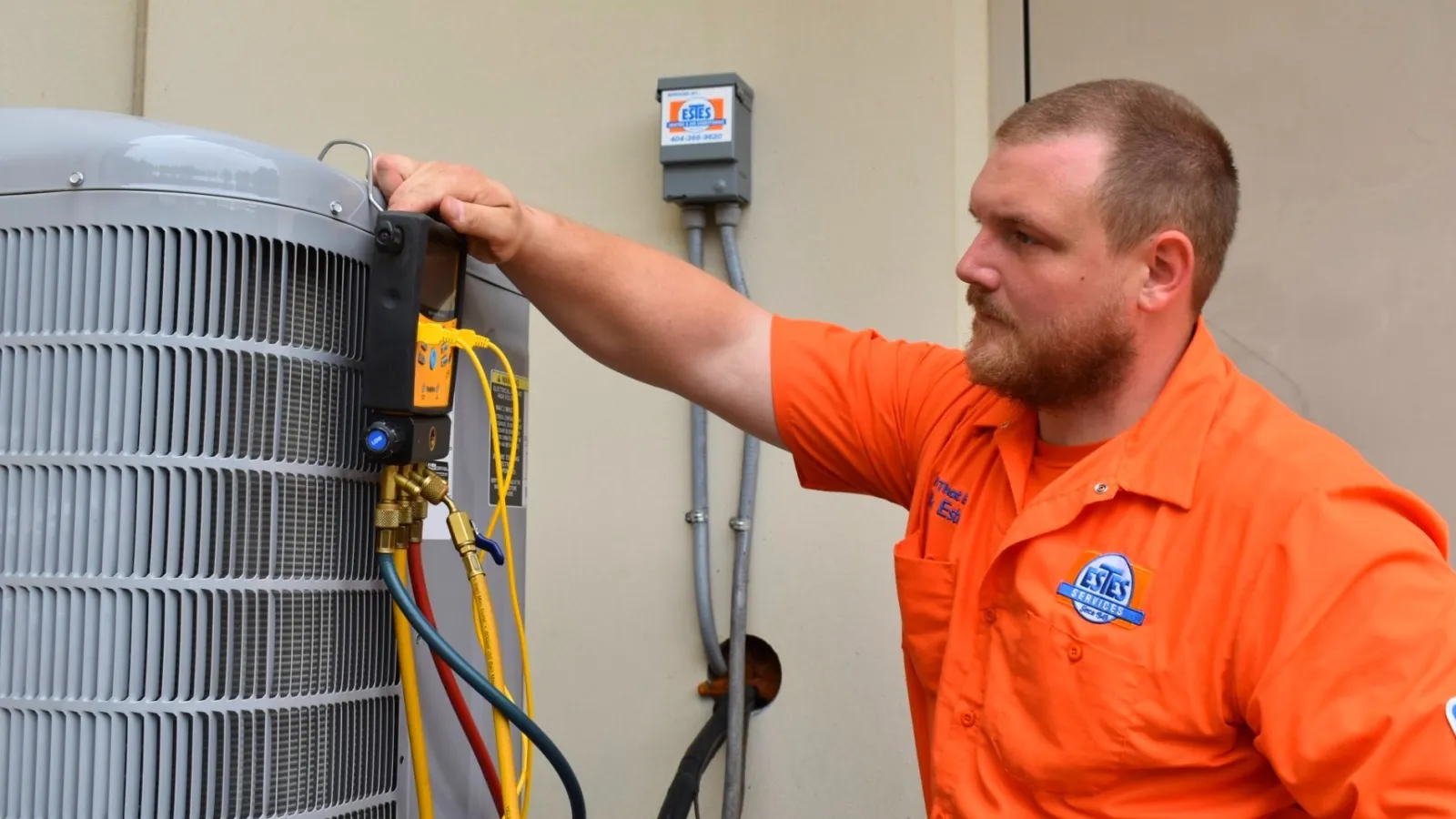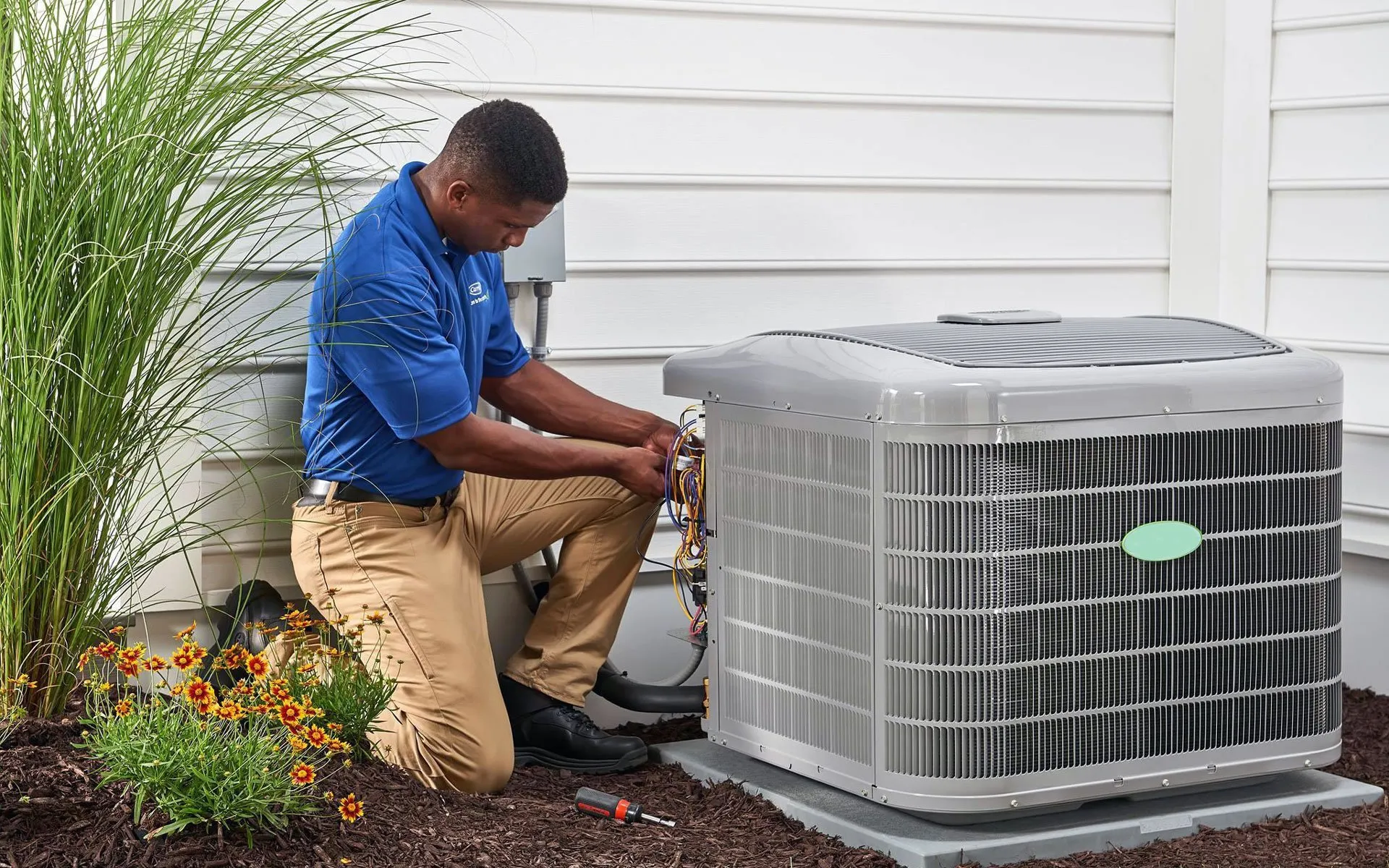Expert Tips for Effective Air Conditioning Installation Brownwood TX
Expert Tips for Effective Air Conditioning Installation Brownwood TX
Blog Article
Comprehending HVAC: A Comprehensive Guide to Home Heating, Air Flow, and A/c Solutions
In today's quickly developing world, a basic understanding of a/c systems is no more a luxury yet a requirement for guaranteeing optimum interior environments. This overview offers an extensive exploration of heating, air, and air flow conditioning solutions, debunking the complex interplay of components that govern convenience and performance. As we browse via the ins and outs of choosing the right system and preserving it for peak performance, one starts to realize the profound influence these systems have on power usage and sustainability. What usual mistakes could be threatening your a/c system's potential without your knowledge?
Basics of A/c Equipments
Home Heating, Air Flow, and Cooling (COOLING AND HEATING) systems are pivotal components in modern design, regularly ensuring optimum interior air high quality and thermal comfort. These systems are essential to maintaining the wellness, performance, and wellness of residents in residential, business, and industrial settings. At their core, HVAC systems are made to regulate the temperature level, moisture, and cleanliness of air, developing a comfy environment no matter of outside weather.
The standard components of a Cooling and heating system include home heating devices, ventilation air ducts, and air conditioning devices. Ventilation, an important facet of the system, involves the exchange of outdoor and indoor air, minimizing interior pollutants and controlling moisture levels.

Selecting the Right Cooling And Heating System
Selecting a heating and cooling system involves a mindful balance of performance, expense, and suitability to the specific needs of a building. The choice process begins with an assessment of the building's dimension, design, and planned use. Bigger structures might require even more robust systems, while property structures might take advantage of smaller sized, a lot more energy-efficient versions. It is important to consider the climate of the place, as this will certainly influence the sort of system that best preserves comfy indoor temperature levels throughout the year.
Energy efficiency scores, such as SEER (Seasonal Energy Effectiveness Proportion) for air conditioning system and AFUE (Yearly Gas Use Effectiveness) for heating systems, are critical elements when examining possible systems. Greater scores normally suggest much better efficiency and lower operating costs over time. Additionally, prospective buyers should contrast in advance costs with potential long-term financial savings to establish the very best economic choice.
One more essential consideration is the kind of system-- whether a central system, split system, or ductless mini-split is proper. Each offers distinct advantages and constraints, based on setup complexity and room needs. Appointment with HVAC experts is advisable to make certain that the system picked lines up with both the structure's requirements and the residents' comfort choices.
Relevance of Routine Upkeep
When the appropriate cooling and heating system is chosen and installed, keeping its efficiency and longevity comes to be a priority. Normal maintenance is essential for making certain that the system operates at peak efficiency, reducing the threat of unforeseen failures. Routine examinations and servicing can recognize prospective concerns before they rise into expensive fixings or replacements, thereby prolonging the lifespan of the tools.

Additionally, adhering to an upkeep schedule can maintain the warranty coverage, as lots of manufacturers call for proof of normal servicing to recognize guarantee insurance claims. Involving professional heating and cooling technicians for regular maintenance guarantees that all parts are evaluated properly and adjusted as required. This aggressive strategy not only safeguards the financial investment in the heating and cooling system yet also promotes a much healthier indoor environment for owners, improving overall well-being.
Enhancing Energy Efficiency
To enhance energy efficiency in cooling and heating systems, it is critical to execute strategies that decrease energy intake while preserving optimum performance. One effective technique is the combination of wise thermostats, which permit accurate control over temperature level setups based upon tenancy and time of day. These tools can discover patterns and readjust home heating and cooling down timetables appropriately, reducing unnecessary power usage.
An additional approach entails normal inspection and cleaning of heating and cooling elements, such as air filters, coils, and ductwork. Clean systems run more effectively, as dust and particles can obstruct airflow and force the system to work harder, consuming even more power. Making sure correct insulation and securing is likewise important, as it stops energy loss go to these guys and reduces the load on HVAC systems.
Furthermore, updating to energy-efficient devices, such as variable-speed motors and high-efficiency compressors, can substantially cut energy intake. These parts change their speed and result to match the certain heating or cooling need, stopping energy wastefulness.
Spending in energy recovery air flow systems can also enhance performance by exchanging heat in between outward bound and inbound air streams, lowering the requirement for additional home heating or cooling. By taking on these procedures, a/c systems can achieve premium power efficiency, bring about minimized operational costs and environmental impact.
Troubleshooting Common Issues
When addressing Heating and cooling system breakdowns, an organized approach to fixing can successfully recognize and deal with common problems. Unclean or clogged filters limit air movement, reducing system efficiency and may lead to overheating or freezing.
Check the breaker and integrates; stumbled breakers or blown fuses can halt system operations. Furthermore, check out the exterior unit for any kind of obstructions or debris that could hinder performance. Regular maintenance of these components can prevent numerous common problems.
Listen for unusual noises, which might show mechanical concerns such as damaged belts or electric motor issues. Unusual boosts in energy bills can also signal underlying ineffectiveness or leaks in ductwork. Guarantee that all vents are unblocked and open to help with optimal airflow.

Expert intervention ends up being necessary if these steps do not resolve the problem, particularly for complicated problems like refrigerant leaks or electrical mistakes. Regular examinations and maintenance by licensed technicians can preemptively attend to potential issues, making sure the heating and cooling system runs efficiently and dependably.

Verdict
In final thought, a comprehensive understanding of HVAC systems is important for making certain optimal interior convenience and air quality. Dealing with common issues with reliable troubleshooting additional makes certain the dependable procedure of Cooling and heating systems, benefiting both businesses and property owners.
As we navigate with the ins and outs of picking the right system and maintaining it for peak performance, one begins to realize additional hints the profound effect these systems have on energy usage and sustainability.Heating, Ventilation, and Air Conditioning (A/C) systems are crucial parts in modern architecture, consistently guaranteeing optimum interior air top quality and thermal convenience (air conditioning installation Brownwood TX).An additional vital factor to consider is the type of system-- whether a centralized system, split system, or ductless mini-split is appropriate. Tidy systems run a read more lot more effectively, as dirt and particles can obstruct air movement and compel the system to work harder, consuming even more power.In final thought, an extensive understanding of Heating and cooling systems is essential for ensuring optimum indoor comfort and air top quality
Report this page